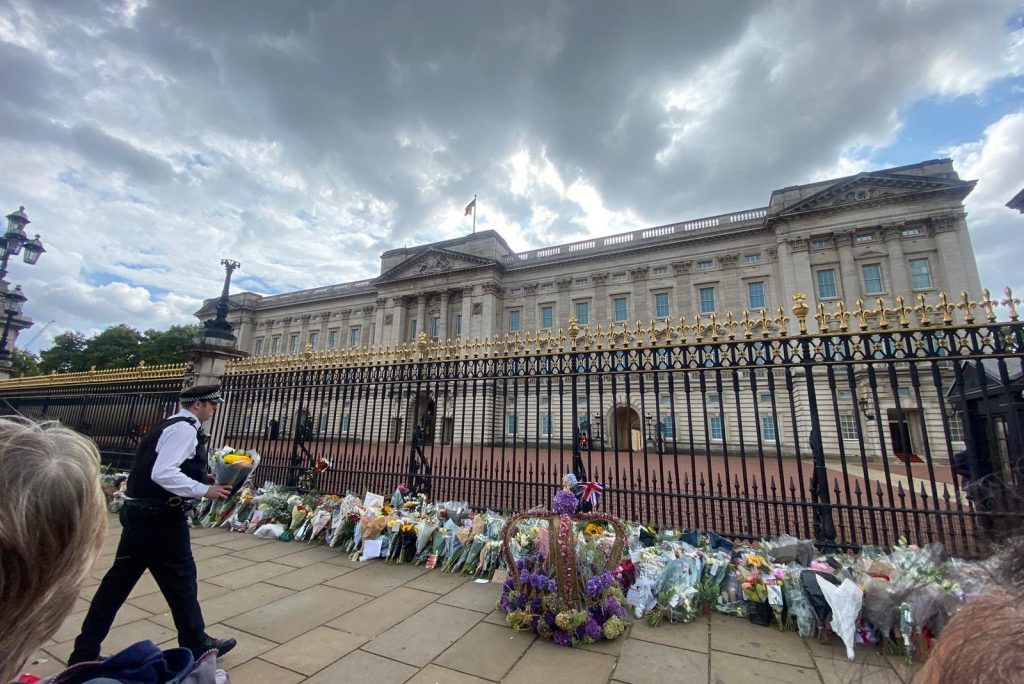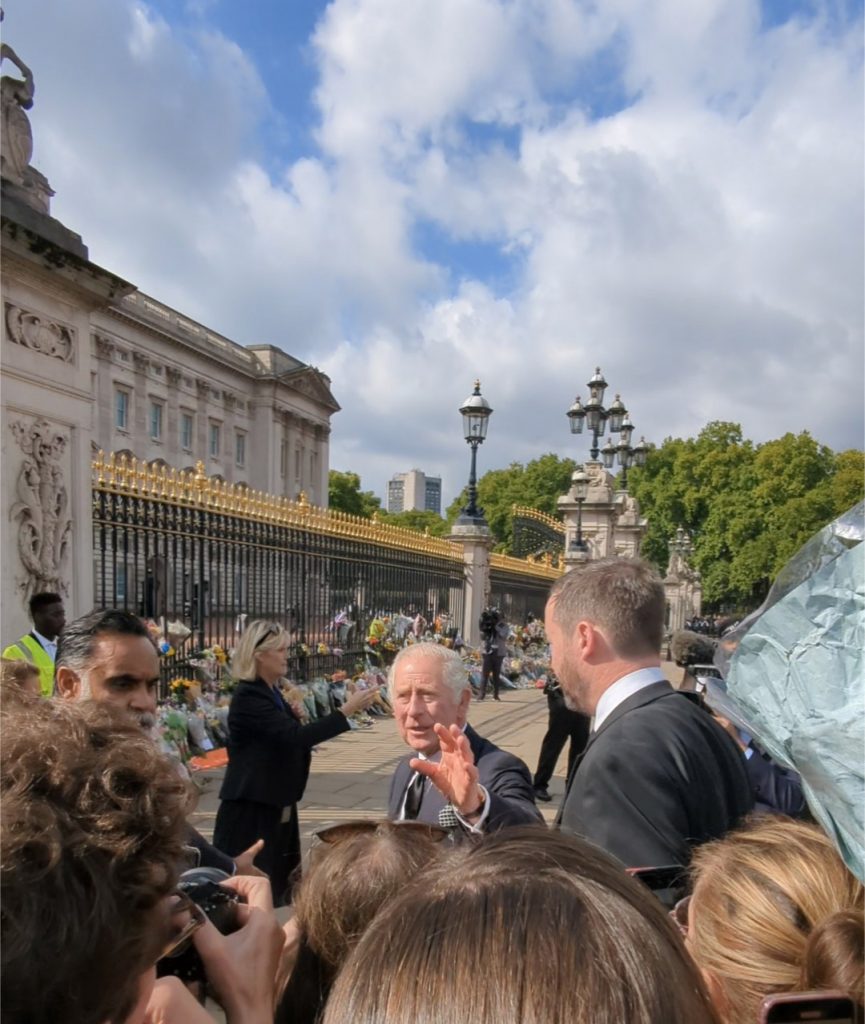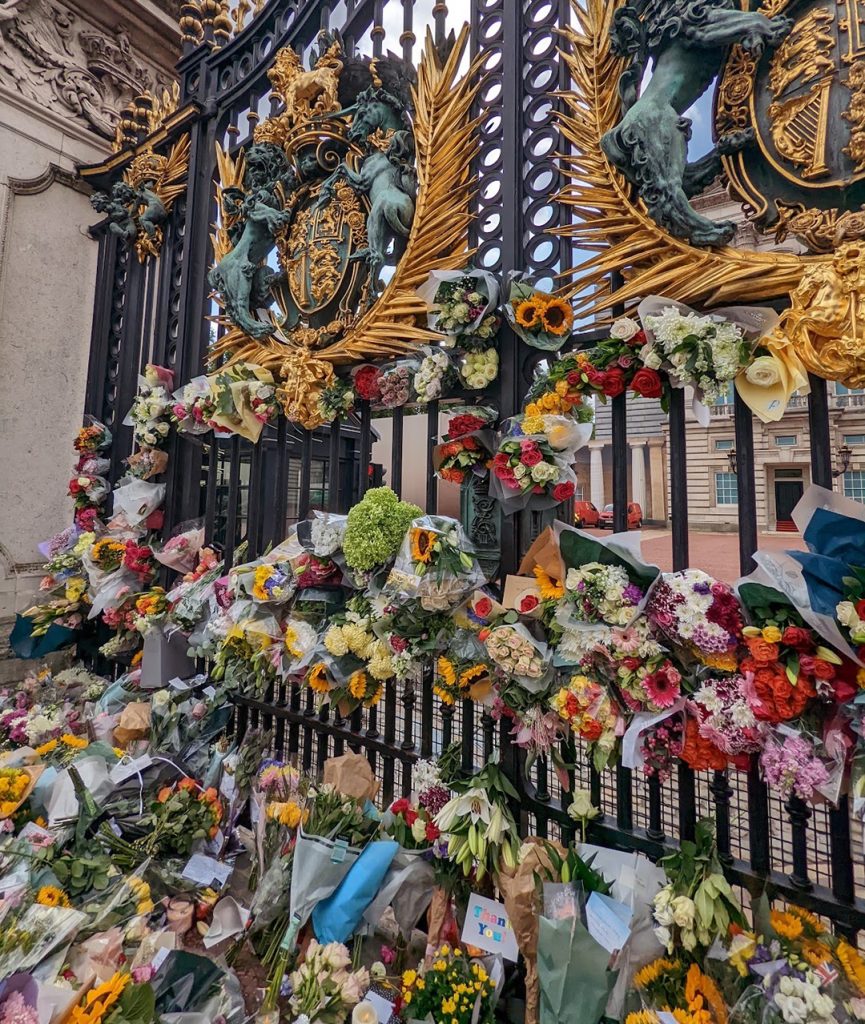SU London students, faculty reflect on ‘surreal’ moment of Queen’s death
SU London students reflect on Queen's death

Emma Knauf had just gotten back to her London flat when she heard the news.
“I was gonna call my mom just to tell her that I was home and how the day went,” she said. “And the first thing she said was ‘dead.’ And I was like, ‘The Queen is dead?’ And she said yes.”
Not long after, her flatmates emerged from their rooms with the same news regarding the death of Queen Elizabeth II on September 8. Knauf, an SU junior studying abroad in London, recalls the disbelief she felt at hearing the announcement.
“I was just shocked,” Knauf said. “I was like, this is crazy. We just got here, we’re still sort of adjusting to London and all of a sudden, this crazy historic event happens.”
Queen Elizabeth II’s reign of over 70 years made her Britain’s longest-ruling monarch, as well as an iconic symbol of the British Royal Family. As her funeral proceedings unfold in the wake of her passing at 96, students in the SU London program describe what it’s been like to personally witness such a significant moment in the country’s history.
International relations junior Sydney Martinez had been monitoring news of the Queen’s health throughout the day after the news broke that she was under medical supervision. She describes being in London during this monumental moment as “surreal” and something she never expected as a part of her abroad experience.
“I think we all kind of like, didn’t really know what to do, just because it’s like a weird time to be a US student in the UK, which is not our home,” Martinez said. “So it was a very surreal moment, I would say.”
Knauf visited Buckingham Palace the following day, witnessing large swaths of people present to pay their respects and observe the scene. While she initially expected to feel overwhelmed by the sheer volume of people there, she says the crowds were quieter and calmer than she anticipated.

King Charles III addresses the crowds gather in front of Buckingham Palace.

Flowers placed on the gates of Buckingham Palace.
Martinez also visited the palace the day after the news broke, and caught a glimpse of King Charles III and Camilla, the Queen Consort, making their first appearance at the palace since the announcement. Their visit generated cheers from the crowds that had gathered, a moment Martinez thought was intriguing.
“It was just a very, very weird timing there because this really devastating moment just happened in history, but then you’re having a lot of people cheering for the king. So the juxtaposition of those two things was very interesting to see,” she said.
However, SU London students are far from the only ones feeling the odd shift. Joe Kerr is an adjunct professor with the SU London program, teaching students about London architecture and the city’s history of rebellions and protests. He’s also lived in London for decades, and has grown up under the rule of Queen Elizabeth II.
Kerr learned of the Queen’s death while out at a pub with friends, and while he didn’t express it at the time, he said that the news made him emotional.
“It’s very bizarre that the Brits feel this attachment to someone who, in reality, is so remote to them,” he said. “But you know, most people in the world haven’t known anything else…And it’s kind of left a big gap, really.”
While global reaction to the Queen’s death has primarily been an outpouring of sympathy and heartfelt tributes, there are also dialogues occurring that are more critical of the monarchy’s colonialist past and the role that the Queen has played in it.
Kerr did say that as somber as her death is, it “opens up uncomfortable questions about this country” that he doesn’t believe people want to answer, with one being the need for a monarchy at all. While he doesn’t think that specific question will come up now, he does believe it changes how the monarchy will have to move forward.
“I think the institution of monarchy probably now is finite,” he said. “It has an end date. But it may well not be in my lifetime either.”
He also admits that while he holds more progressive viewpoints, he has a “quiet affection” for the institution, acknowledging that his position isn’t necessarily the most logical one.
Where the monarchy will go in the future is anyone’s guess. Kerr says he hears predictions that Charles III will slim down the institution, and he believes that the monarchy will continue to survive for the time being as they always have: noting and responding to change and the overall public mood.
For now, though, the Queen’s death hangs heavy over the public and also allows SU students to experience a unique moment in history. Martinez says that being present during this moment in history has opened her eyes to how much the Queen’s death has affected the country, something she believes she wouldn’t have understood had she been back home in the United States.
“I think being here, you feel all of the emotion that everyone is feeling,” she said. “It’s very eye-opening to kind of see that cultural shift … even just going out on the street and seeing people carry flowers or all these other things, like how much it’s affected this country, that I think that I wouldn’t have ever pictured if I was just sitting on my couch at home in the U.S.”
Kerr says that he’s lived through some significant moments in history before, and he calls the Queen’s death “one of those moments where you just know that the world is changing around you.”
“I’ve reached an age where I’m not as good as I might be at managing change,” he said. “When you come back to London next time, whether it’s next year or in five or 10 years’ time, it will be a different city, because of what’s happened just in the last seven days. And what’s about to happen in the next seven days.”





